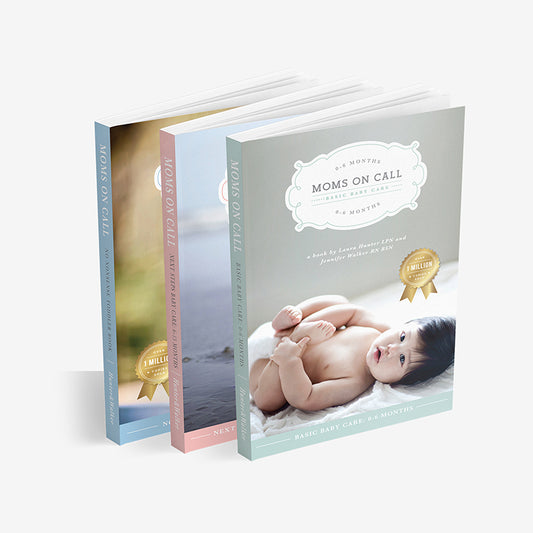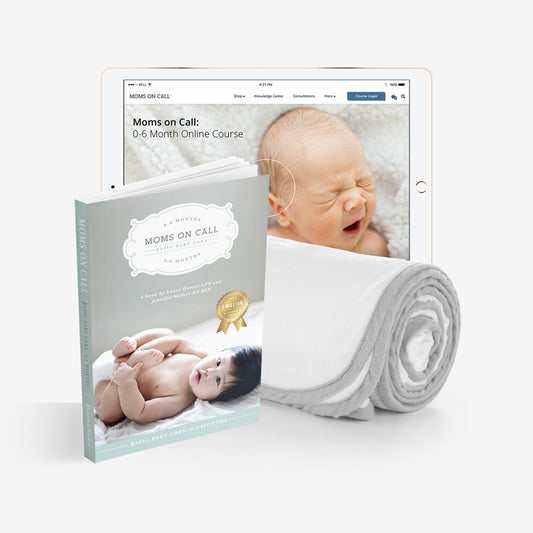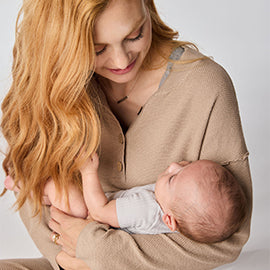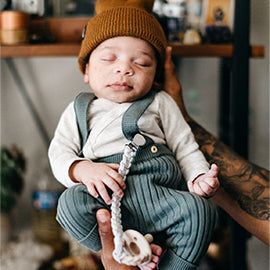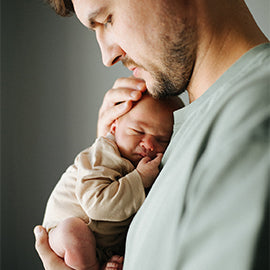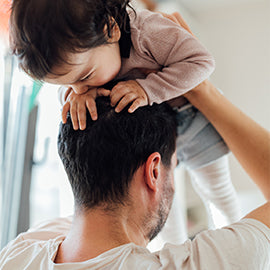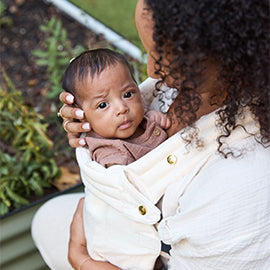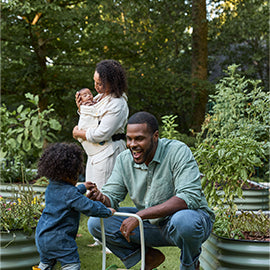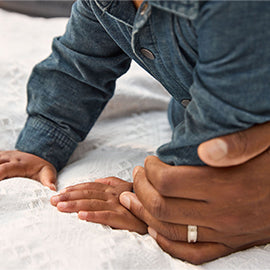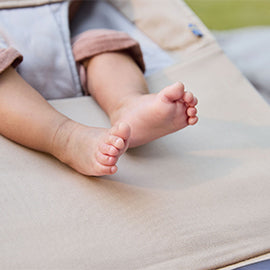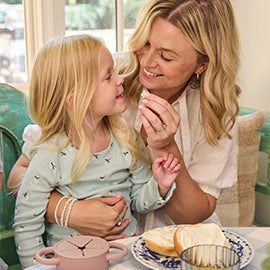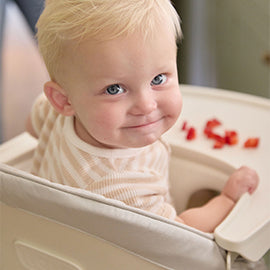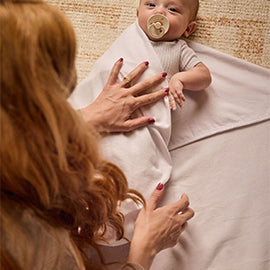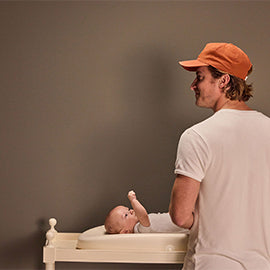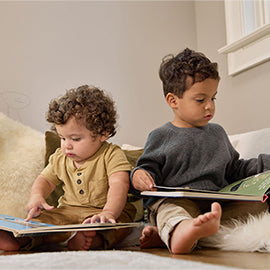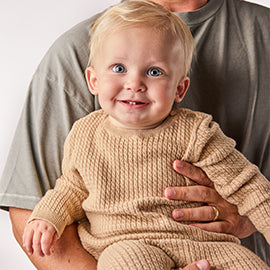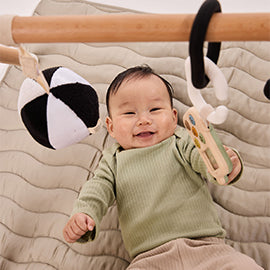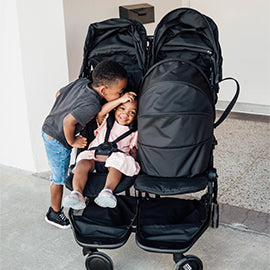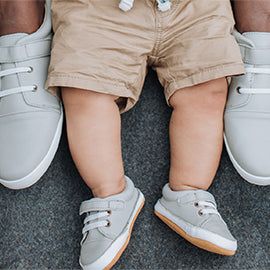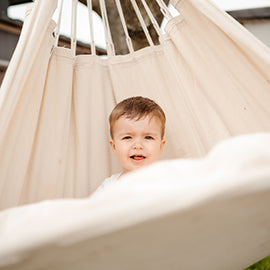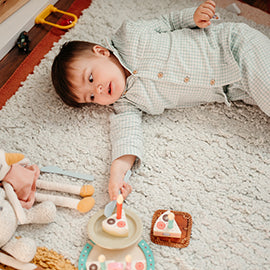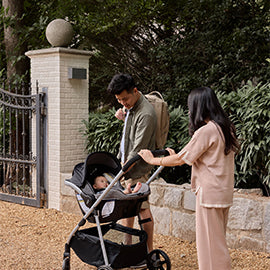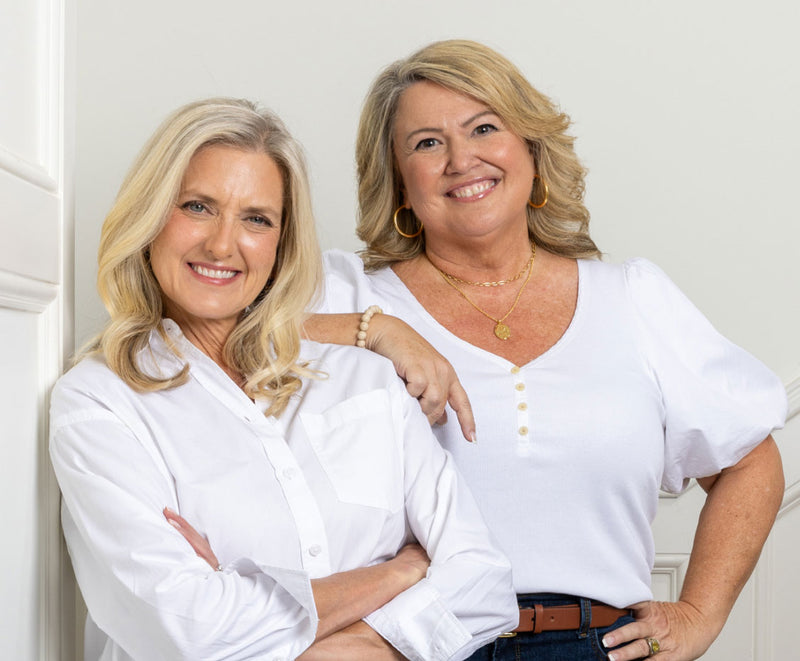Confession: I can’t remember what I had for dinner two nights ago, but I could sing every single word to the 1996 hit “Wannabe” by the Spice Girls right now. I can remember the song I slow danced to at my first 6th grade dance. I hear the opening two chords of a Carole King tune and immediately get teared up because it reminds me of my grandmother. I don’t think anyone can argue the immense power that music has in our lives. Music can represent people, places, events, emotions, and memories. It’s our companion through every stage of life. Many people don’t realize that our relationship with music begins in the womb. A growing baby has a personal DJ by the name of “mom” with the best beat in town. The heartbeat and the natural melody of the mother’s voice become sounds of comfort, predictability, and safety.
When my son was born, I laid him on my chest and said “hello.” My eyes locked with his. Through the haze of those first several weeks as a first time mom - and even now with a 13 month old! - I relied so heavily on my voice and music. It calms him. As a music educator and music therapist, I absolutely loved learning about child development and the role of music. Music can assist with language skills, auditory development, cognitive functioning, motor skills, social skills, emotion regulation, the list goes on and on.
I want to speak about the importance of live singing for a moment. Now, I know what you may be thinking. “I am not a singer. I can’t sing.” I promise your baby will not care if every note is out of tune. They will be enamored and comforted.
Music is a wonderful tool to promote bonding, especially at this young age when other activities simply aren’t an option. A baby does not have to meet any criteria to participate in a shared musical experience with you.
Dr. Christa Reeves is an Audiologist with Little Listeners, a pediatric audiology clinic specializing in Auditory Processing Disorders and treatment in the Metro Atlanta area. She also screens and tests newborns for hearing loss as part of the National Early Hearing Detection and Intervention (EHDI) Program. She states, “Communication involves so much more than audition. Infants in particular are very in tune (pun intended) with all of the other nuances of speech. There is of course what they can see, but what they FEEL is also critical to language learning. They can feel your breath on their faces and the vibrations through your chest when they are being cuddled. These more kinesthetic elements of speech and singing will be missing if only recorded music is utilized.”
How can I incorporate music into my 0-6 month old baby’s day?
Awake Time
- Create a song about whatever you are doing in the moment (i.e. Mama’s changing your diaper, diaper, diaper; I am shaking your rattle up and down, side to side, etc.).
- Pairing physical movements and gestures to your language can assist in language comprehension.
- If your baby is babbling, take a neutral syllable similar to the sound they are making, such as “ba ba ba,” and sing a few notes back just as if you were having a conversation.
- Give your baby an age appropriate instrument, such as an egg shaker with a handle they can grasp. Watch them explore the cause and effect of their movement controlling sound!
- While live music is preferred, recorded music may also be used in moderation.
- Listen to music in the background while you are playing with your baby. I encourage you to expose your baby to music of different genres and cultures!
- Play a song while holding your baby in your arms and gently sway or bounce to the beat.
- Lay your baby on the floor facing up at you and gently move their arms and/or legs to the beat. Who says a 2 month old can’t dance?!
- Note: The instrumentation and tempo of a song can overstimulate a baby. If you are attempting to offer your baby a nap in a few minutes, it may not be beneficial to play Ozzy Osbourne’s “Crazy Train.”
Here's an example of a song that you can sing during Awake Time! While the song is available to stream, I encourage you to learn it and sing it with YOUR voice to your baby.
How to Bond with your Infant Using Hello and Nighty Night Songs from Metro Music Makers on Vimeo.
Tender Time
Music can play a valuable role in Tender Time! Routine is key and singing the same song before laying your baby in the crib can help to cue sleep. Check out our song, “Nighty Night” (beginning at minute marker, 2:30) to see an example of implementing a Tender Time song. I encourage you to use this song or another song that you enjoy as a part of your child’s sleep routine.
Music is not going to solve every challenge that comes along with having an infant, however, it can help you and your baby become more “in tune.”
Stay tuned for our next blog sharing musical tips for children ages 6-15 months!
“Nighty Night” and “Hello” are available on digital music platforms here.

For more information about music lessons, music therapy, or customized song options for your little one at Metro Music Makers, please visit www.metromusicmakers.com.

